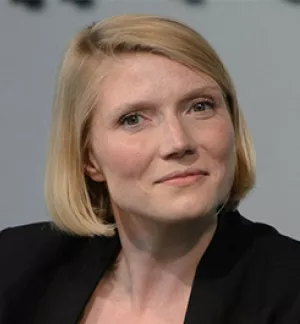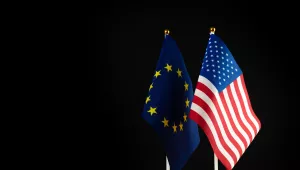
A conversation with William Drozdiak, former Foreign Editor at the Washington Post
“Europe is more important to America’s diplomatic legacy than ever before,” said William Drozdiak, long-time journalist and former Foreign Editor at the Washington Post and author in his book talk at the Future of Diplomacy Project with Cathryn Clüver Ashbrook, Executive Director. “I wrote this book for Americans, and for people who take for granted that Europe as a strategic problem is fixed.”
Drozdiak recently published “Fractured Continent; Europe’s Crises and the Fate of the West,” a book reflecting Europe’s current internal and external pressures. Drozdiak covered Europe in his time as foreign editor, but first developed a personal connection to the continent as a professional basketball player.
The European Union is one of the world’s greatest achievements in terms of peacemaking. It was built on great ideas, Drozdiak began, but three of those ideas in particular exacerbated its vulnerabilities: a single currency; open borders; and support for budding democracies. Today, the European Union faces the withdrawal of the United Kingdom and porous borders for intervention and propaganda especially from Russia. To the West, Europe is confronted with – for the first time in 70 years – an American president, who treats Europe like an economic rival instead of an ally.
“Europe's development, however, is part and parcel of American democratic values. The only way to defend American values as to ally with those states that hold the same values, over rising autocratic governments,” Drozdiak advised.
The isolationist policies that President Trump ushered into the White House are not new, Drozdiak said. America saw isolationists drive legislation like the 1919 Quota Act limiting immigration to the United States, U.S. anti-Semitism, and avoidance of World War II until an attack on Pearl Harbor. Now again, the movement pulls America away from Europe. “A Post-American Europe” is what remains, Drozdiak noted.
European states confront some of the same internal pressures as the U.S. in the form of populist movements and identity politics. For example, Finland’s True Finns party, Italy’s Five Star movement, and Marie Le Pen’s runner-up status in the French presidential election marked the rising tide of populism. Spain’s Catalonian independence movement could encourage nationalist, independence movements across Europe. “Mainstream parties have simply collapsed because of weak leadership and ineffectual messages.”
Drozdiak was particularly concerned about the credibility and goals of media in Europe and the United States. As autocrats outpace democracies on the internet for the purpose of distorting truth, spreading propaganda, division and discontent is sown or exacerbated. “Misinformation, confirmation bias, and fictitious news erode values in the West.”
Jose Antonio Sabadell, Rafael Pino Fellow at the Future of Diplomacy Project and former Ambassador of the European Union to Mauritania, asked, whether in Drozdiak’s estimation the European Union poised to work through these issues together. He responded: "The problems today have the same source. The people are the same. The situations have changed though and people have a certainty and hope for their children. What about the next 25 years?"
“Over the long term,” Drozdiak said, “I'm extremely positive. The European Union is a glorious experiment. It brought democracy to Spain and peace between Germany and France since. The social welfare networks are well-developed models... Now its politicians have to preserve a sense of solidarity.”




